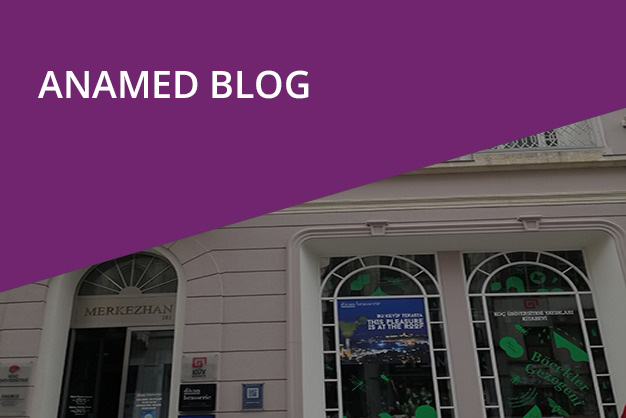
R. H. Tawney, an early twentieth-century historian, reputedly urged his fellow historians to don “a stout pair of boots.” According to Tawney, historians should not just peer at documents but also travel in order to acquire a better understanding of the past. If Tawney had known what 2020 held in store, perhaps he would have instructed us instead to buy some cozy slippers.
At the beginning of March this year, I left ANAMED and set out for a two-week trip, first to London’s archives and then across the Atlantic to an academic conference in Charlotte, North Carolina. As I took each step in my carefully planned trip, the severity of the COVID-19 situation became clearer and clearer. I had no sooner arrived in London than Koç University announced its travel restrictions and quarantine procedures. Between the time I boarded my plane in London and my arrival in Charlotte, most American universities had announced the closure of their campuses for the remainder of the academic year. The conference in Charlotte went ahead with only ten percent of the usual attendance, mostly composed of people who, like me, had been traveling for too long to change their plans. The idea of holding the conference even just a few days later would have been unimaginable. Afterwards, I packed my carry-on bag and returned home, not to ANAMED but to my US university in New Haven, and I owe much to the heroics of my friends and colleagues at ANAMED for sending me my documents, books, and belongings.
At my desk in New Haven, far from the Bosphorus, I’ve been traveling vicariously through the paper trail of seventeenth-century Levant Company merchants, the globetrotters of their day. These merchants traded cloth, silk, and ideas between London and the eastern shores of the Mediterranean, negotiated patterns of plague and the closing and reopening of business, and confronted the fragility of early modern life. In their day, too, partisan disputes were rife with those who pressed for strict quarantine policies to protect people from disease clashing with economic interests keen to avert delays in shipping and business. In the past few months, COVID-19 has directed many of our reading lists, pushing us towards books like Daniel Defoe’s Journal of the Plague Year or Albert Camus’s The Plague. I’d also urge people to consider The Yellow Flag: Quarantine and the British Mediterranean World, 1780–1860,serendipitously published this last March. In the book, Alex Chase-Levenson analyzes nineteenth-century debates between public health officials and free trade proponents that may feel eerily familiar.
I hope you are all healthy and well. And perhaps sometime soon, we’ll have need of those “stout boots” to travel once more!
—Ellen Nye, PhD Fellow, 25 May 2020

